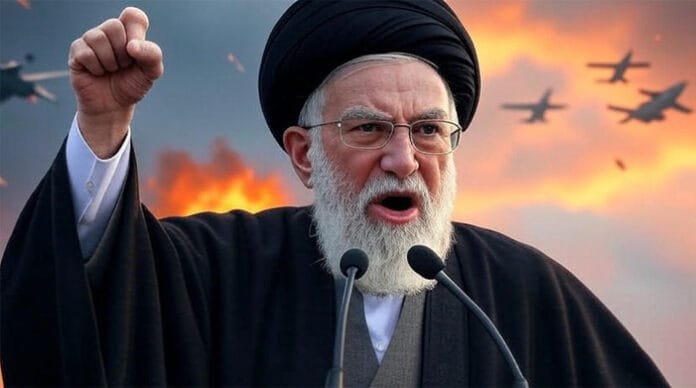INVC NEWS
Middle East – :The Tehran denounced American airstrikes on its nuclear facilities as “outrageous” after President Donald Trump authorized a major military operation that marked a sharp escalation in the ongoing conflict involving Israel.
U.S. warplanes struck Iran’s nuclear sites at Fordow, Isfahan, and Natanz after 10 p.m. ET on June 21, targeting what American intelligence labeled as critical enrichment infrastructure. Trump, addressing the nation after the attacks, declared that “Iran’s key nuclear enrichment facilities have been completely and totally obliterated,” warning of additional strikes unless Tehran agrees to a diplomatic settlement.
The aerial assault was launched after days of escalating violence between Israel and Iran, with missile exchanges intensifying across the region. The Pentagon confirmed that no U.S. forces were injured, and the operation was completed well past midnight local time on June 22.
With more than 40,000 American troops stationed in the Persian Gulf, defense officials anticipate the possibility of Iranian retaliation in the coming days. Heightened alert levels have been issued across U.S. bases in the region.
Iran’s Foreign Minister Seyed Abbas Araghchi responded sharply, calling the U.S. strike a violation of sovereignty. “Iran reserves all options to defend its sovereignty, interests, and people,” Araghchi said in a statement on X, formerly Twitter. He added that the attacks were “outrageous and will have everlasting consequences.”
The foreign minister further warned, “Each and every member of the UN must be alarmed over this extremely dangerous, lawless, and criminal behavior.” His comments drew swift attention from international observers and global media.
Trump’s decision drew a polarized response from Washington lawmakers. Progressive Democrats and several conservative Republicans criticized the airstrikes as illegal, citing the lack of congressional authorization. However, others supported the move, particularly in light of Israel’s continued bombardment by Iranian rockets over the past week.
Early on June 22, explosions were reported in central Israel, with sirens sounding across Tel Aviv. Israeli defense officials attributed the blasts to “another Iranian missile launch.” No confirmed details on injuries or fatalities were available at the time of reporting.
The Israeli military remains on high alert, as officials monitor both Iran’s direct military actions and potential responses from its regional proxy groups.
Iran reiterated its stance later on June 22, repeating that it “reserves all options” to respond to the U.S. strikes. Araghchi’s latest post echoed his earlier message, warning again of “everlasting consequences” and calling on the United Nations to take immediate notice.
Tensions between Washington and Tehran have reached a new peak, as analysts warn of potential ripple effects throughout the broader Middle East.














